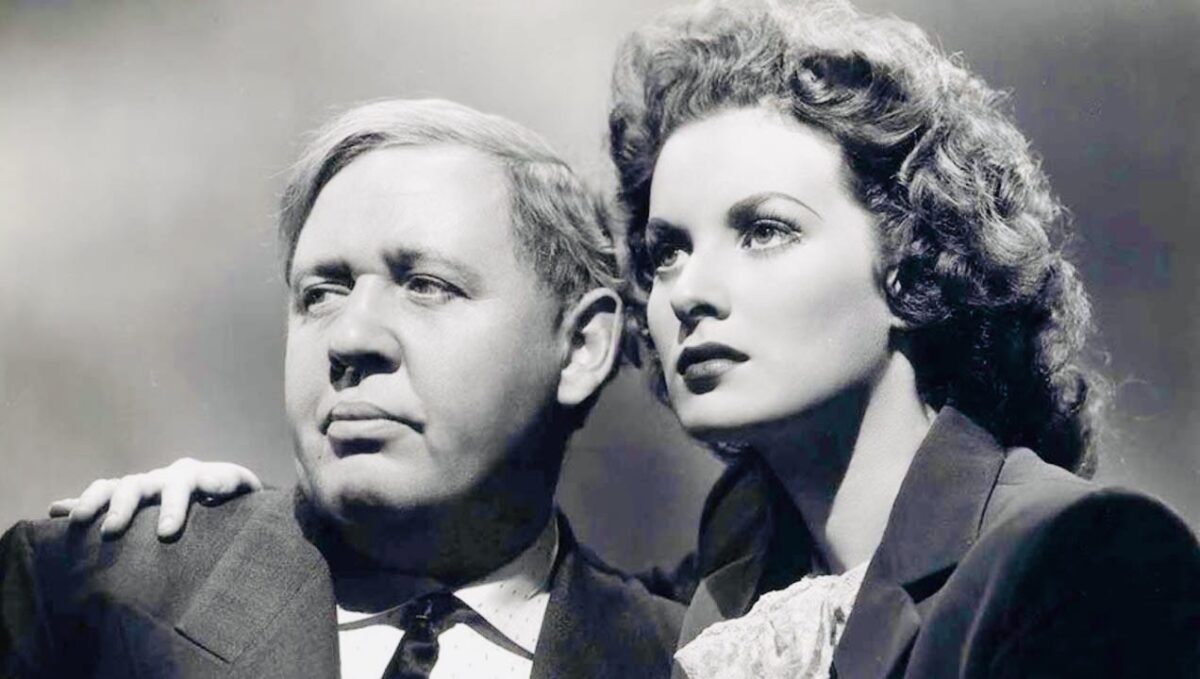Jean Renoir’s rousing anti-Nazi drama, This Land Is Mine, was a boilerplate propaganda film intended to whip up patriotic fervor and strengthen U.S. public support for the ongoing war against Germany.
During its production, the German army was still in conquest mode. But when the picture was released in May 1943, the tide had turned, with the Wehrmacht, at the Battle of Stalingrad, having suffered its worst military defeat during World War II. From that point forward, Germany was on a downward spiral militarily.
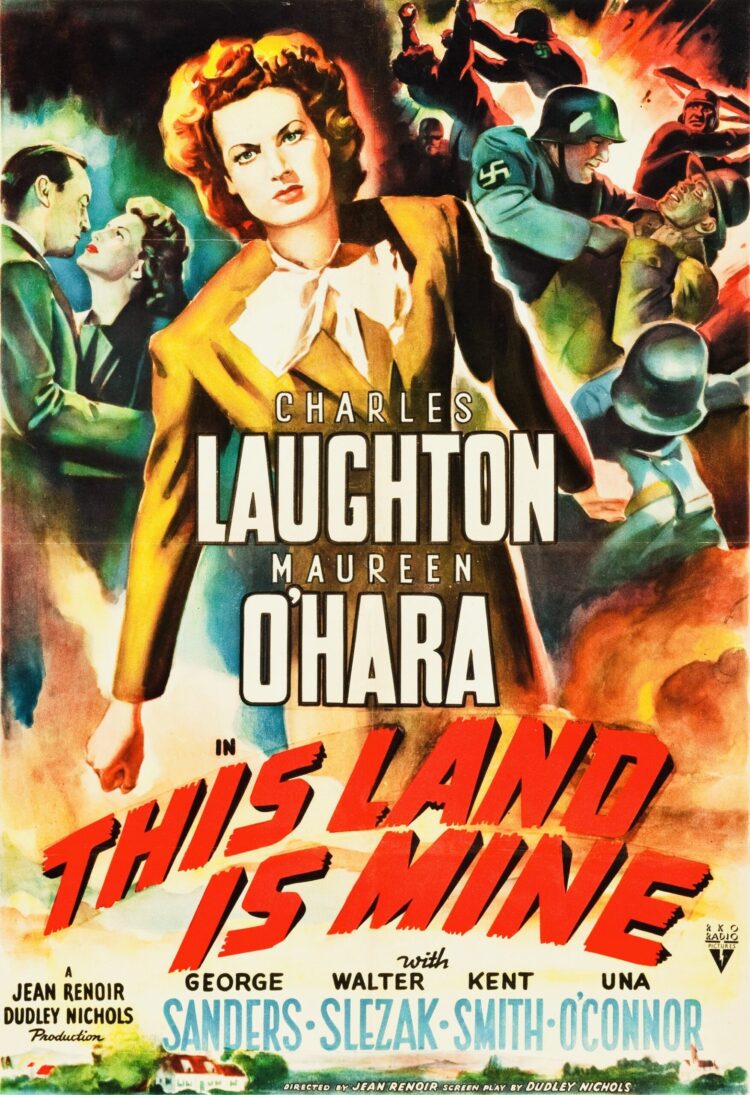
An RKO Radio Pictures film, This Land Is Mine was recently screened on the Turner Classic Movies channel. Set in a town “somewhere” in Europe, probably in France, it stars the British actor Charles Laughton as a timid and cowardly school teacher who evolves into an heroic figure during the Nazi occupation.
Unlike most wartime Hollywood pictures of this genre, Renoir’s portrayal of the Nazi occupiers and their victims is measured.
The commander of German forces in the town, Major Erich von Keller (Walter Slezak), is presented as an intelligent and relatively reasonable person. Though an ardent Nazi, he appears neither brutal nor bestial, a far cry from the usual German officer in Hollywood movies of the era.
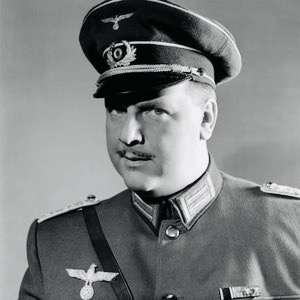
As for the people in town, some are resigned to the occupation, which initially unfolds as German troops march in unopposed and the swastika flutters from the roof of the municipal building. The mayor, an elderly gentleman named Manville (Thurston Hall), urges cooperation with the occupiers and tolerates the burning of books deemed “undesirable” by the Germans.
Albert Lory (Laughton), the chief character, has a skeptical view of resistance fighters, while his mother, Emma (Una O’Connor), thinks they’re nothing but “troublemakers.”
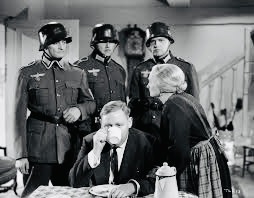
Lory’s colleague, Louise Martin (Maureen O’Hara), is definitely anti-Nazi. In a classroom scene, she reluctantly instructs her pupils to tear certain pages out of textbooks deemed subversive by the Nazis. But in a strong aside, she adds, “The day will come when we will paste back pages where they belong.”
Her brother, Paul ((Kent Smith), is actively involved in the resistance movement, organizing the derailment of a Berlin-bound train and an attack on German soldiers. These acts of sabotage infuriate von Keller, who looks forward to a “united, peaceful” Europe under Nazi tutelage.
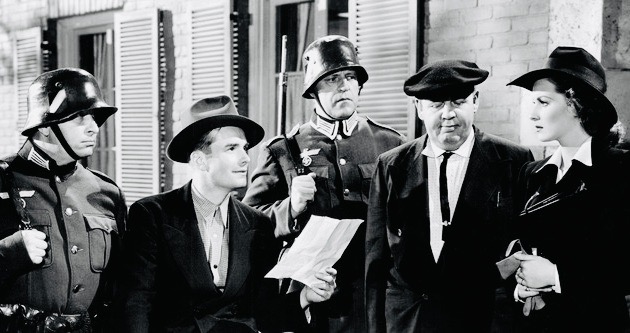
Louise’s fiancé, George Lambert (George Sanders), the general manager of the railway yard, dislikes the occupation, but accepts it as a necessity. He believes in Germany’s “new order,” holds a dim view of “democratic ideas,” and claims that resisters should turn themselves over to the Germans. Given Lambert’s pro-German views, his relationship with Louise hangs on a thread.
Lory, at first, is depicted as a weak, unsteady person. During a heavy British bombing raid, he cowers in a bomb shelter. With the passage of time, he develops a backbone. His Jewish co-worker, Sorel (Philip Merivale), is contemptuous of the Nazis and confident that the Allies will prevail. Eventually, the Germans arrest him.
Lory redeems himself after the untimely death of a prominent citizen. He denounces the occupation. He praises saboteurs like Paul. He warns that a German victory would be disastrous. And citing lines from the French Declaration of the Rights of Man and of the Citizen, he hails the importance of democratic norms such as liberty and freedom.
Lory’s energetic pep talk on behalf of the Allied cause is didactic, but the film’s raison d’être is directly aligned with its underlying patriotic message.
